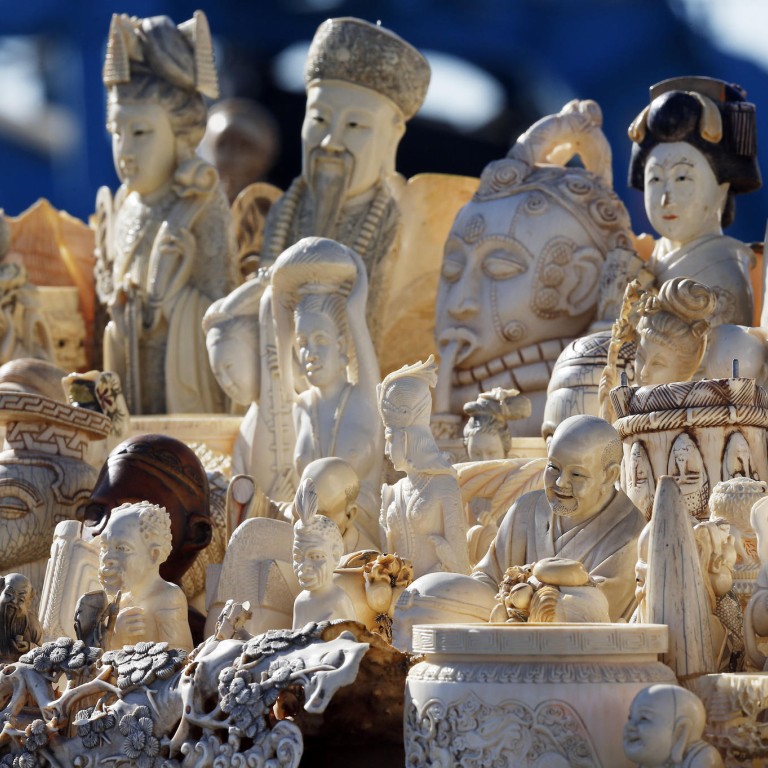
White House bans nearly all US ivory sales in move to combat elephant poaching
White House move to combat trade hailed by conservationists battling elephant poaching
In what animal conservationists hailed as a "significant milestone" in the global fight against elephant poaching, the Obama administration has announced a ban on nearly all ivory sales in the United States.
As part of the new National Strategy on Wildlife Trafficking to end a trade that threatens to wipe out the world's largest land animal, the administration said on Tuesday that for the first time vendors must prove beyond any doubt that ivory up for sale is an antique, as allowed under the Endangered Species Act.
Administration officials said authenticity could only be proven with a US government permit showing the ivory was imported prior to a ban in 1989, or a foreign government permit showing it was exported before that time. Ivory older than a century is also exempted with proof.
Even with a permit, there will be no sale of ivory allowed across state boundaries, according to an administration official. Conservationists hailed the moves to combat illegally poached and traded ivory, which have exploded in recent years. The value of ivory, estimated at US$3,300 per kilogram by the time it reaches China, and rhinoceros horn, which police and prosecutors said was worth "more than its weight in gold", with estimates as high as $55,000 per kg, is driving a robust black market trade.
The United States is the world's second-largest market behind China for illegal wildlife artifacts. The legal sale of ivory in the United States and the world helps to mask black market sales, US prosecutors and law-enforcement officials say.
Officials at the US Fish and Wildlife Service said US leadership was key, as shown last year when its crush of several tonnes of seized ivory led China and France to follow suit.
Some 35,000 elephants are killed each year. Last year, more than 1,000 rhinos were poached in South Africa alone.
"Every piece of ivory comes from a dead elephant," said Jeff Flocken, regional director for North America at the International Fund for Animal Welfare. "The US, by coming up with this national strategy, is saying they take wildlife crime very serious. We're looking at our own house and how we can address our own consumption."
It was impossible for law enforcement to identify whether ivory was purchased before 1989 or an antique through observation. Shifting the burden to the seller to prove an artifact's age was a huge development, Flocken said.
World Wildlife Fund President and chief executive Carter Roberts called the proposed changes "a significant milestone in the global fight against wildlife crime . . . reflecting the fact that it has grown into one of the most profitable criminal industries in the world, estimated at US$10 billion annually".
The administration elevated the illegal trafficking of ivory and rhino horn to a priority for several federal agencies, including the departments of State, Justice, Homeland Security and Interior, which oversees Fish and Wildlife.
The strategy aims to strengthen enforcement and reduce demand for black market wildlife artefacts around the world.
Commercial exports of ivory products will also be banned, except for proven antiques and specific exceptions allowed under the Endangered Species Act. Permits for importing elephant sport-hunting trophies collected by Americans in Africa will be reduced to two a year.
